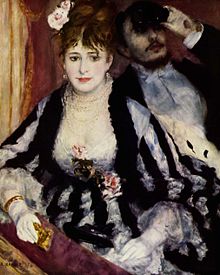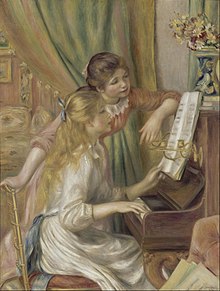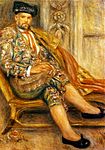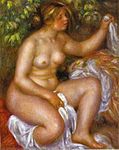Pierre-Auguste Renoir
Pierre-Auguste Renoir, commonly known as Auguste Renoir (US /rɛnˈwɑr/ or UK /ˈrɛnwɑr/; French: [pjɛʁ oɡyst ʁənwaʁ]; 25 February 1841 – 3 December 1919), was a French artist who was a leading painter in the development of the Impressionist style. As a celebrator of beauty, and especially feminine sensuality, it has been said that "Renoir is the final representative of a tradition which runs directly from Rubens to Watteau."He was the father of actor Pierre Renoir (1885–1952), filmmaker Jean Renoir (1894–1979) and ceramic artist Claude Renoir (1901–69). He was the grandfather of the filmmaker Claude Renoir (1913–1993), son of Pierre.
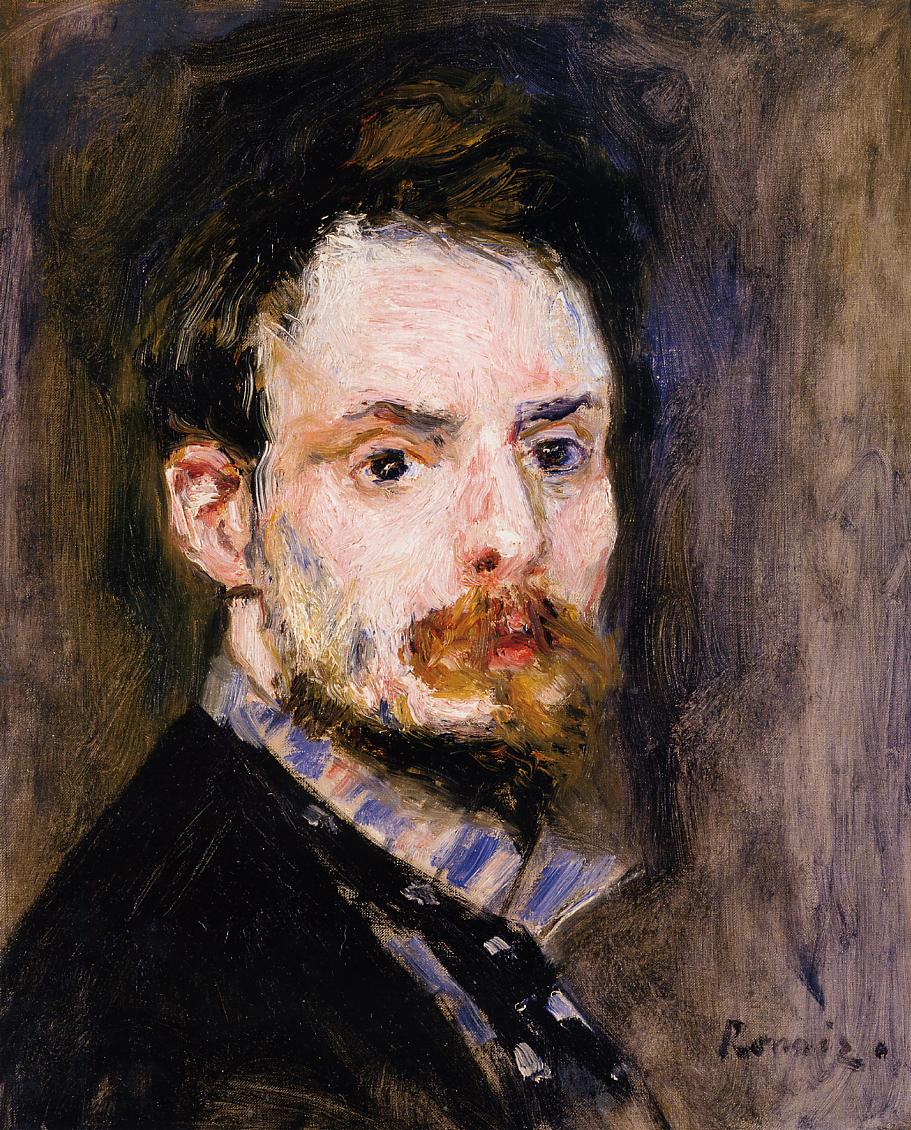 One of the best known Impressionist works is Renoir's 1876 Dance at Le Moulin de la Galette (Bal du moulin de la Galette). The painting depicts an open-air scene, crowded with people at a popular dance garden on the Butte Montmartre
close to where he lived. The works of his early maturity were typically
Impressionist snapshots of real life, full of sparkling color and
light. By the mid-1880s, however, he had broken with the movement to
apply a more disciplined formal technique to portraits and figure
paintings, particularly of women. It was a trip to Italy in 1881, when
he saw works by Raphael and other Renaissance
masters, that convinced him that he was on the wrong path, and for the
next several years he painted in a more severe style in an attempt to
return to classicism. Concentrating on his drawing and emphasizing the outlines of figures, he painted works such as The Large Bathers (1884–87; Philadelphia Museum of Art) during what is sometimes called his "Ingres period".
One of the best known Impressionist works is Renoir's 1876 Dance at Le Moulin de la Galette (Bal du moulin de la Galette). The painting depicts an open-air scene, crowded with people at a popular dance garden on the Butte Montmartre
close to where he lived. The works of his early maturity were typically
Impressionist snapshots of real life, full of sparkling color and
light. By the mid-1880s, however, he had broken with the movement to
apply a more disciplined formal technique to portraits and figure
paintings, particularly of women. It was a trip to Italy in 1881, when
he saw works by Raphael and other Renaissance
masters, that convinced him that he was on the wrong path, and for the
next several years he painted in a more severe style in an attempt to
return to classicism. Concentrating on his drawing and emphasizing the outlines of figures, he painted works such as The Large Bathers (1884–87; Philadelphia Museum of Art) during what is sometimes called his "Ingres period".After 1890 he changed direction again. To dissolve outlines, as in his earlier work, he returned to thinly brushed color. From this period onward he concentrated on monumental nudes and domestic scenes, fine examples of which are Girls at the Piano, 1892, and Grandes Baigneuses, 1887. The latter painting is the most typical and successful of Renoir's late, abundantly fleshed nudes.
A prolific artist, he created several thousand paintings. The warm sensuality of Renoir's style made his paintings some of the most well-known and frequently reproduced works in the history of art. The single largest collection of his works—181 paintings in all—is at the Barnes Foundation, in Philadelphia.
Source: Wikipedia

